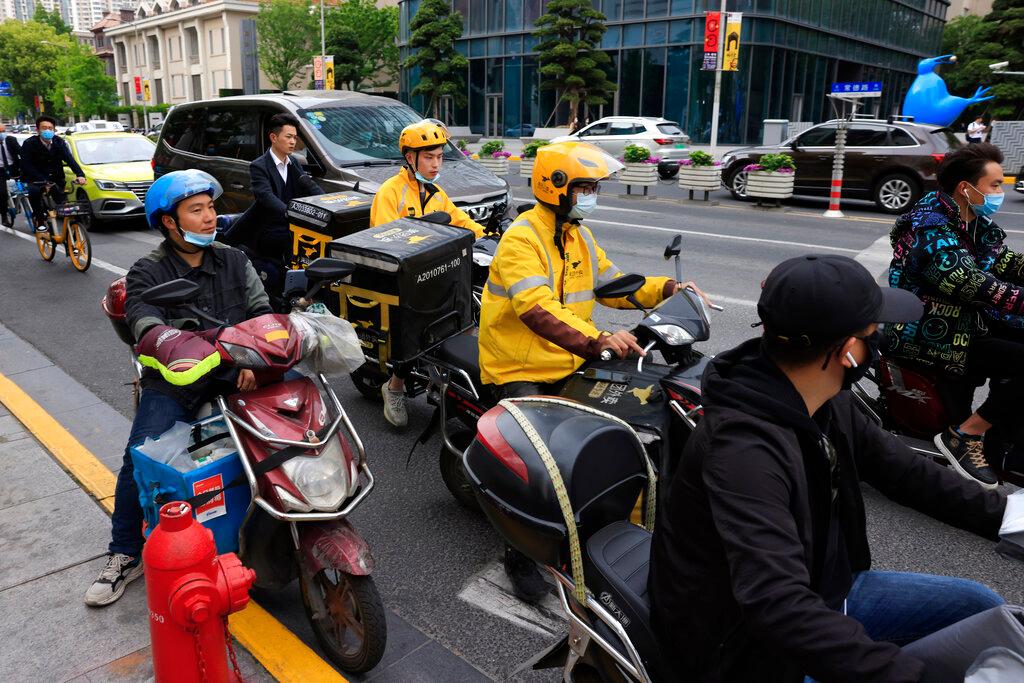China enforces minimum wage for delivery riders amid crackdown on mega tech
Food delivery and other big tech company shares lost billions of dollars on the news.
Just In
Chinese regulators have ordered online platforms to pay their food delivery riders the country’s minimum wage and improve work conditions.
This is seen as part of the state’s effort to rein in Big Tech and emphasise consumer and workers’ rights, reports Bloomberg.
The mandate was issued on Monday by the State Administration for Market Regulation (SAMR) and six other government agencies and is aimed at expanding basic labour rights for riders, including minimum wage, work safety, food safety, and access to insurance coverage.
Meituan, a food delivery service that employs about three million riders delivering an average of more than 27 million food orders a day in 2020, lost US$40 billion (RM170 billion) in market value when the new regulation was announced.
The news comes in the wake of complaints by riders that they lack proper labour safeguards. A recent government video showing a local labour official working a 12-hour shift as a Meituan rider went viral on Chinese social media.
According to Statista, China’s minimum wage varies by region, with Beijing at the highest with 24 yuan (RM15) per hour and Qinghai lowest at 13 yuan (RM8) per hour.
The guideline also touches on “strict algorithms” that facilitate unreasonable delivery deadlines that can force riders to ignore traffic safety rules in order to not get in trouble with bosses and meet their quota.
Delivery time requirements should be appropriately relaxed, SAMR said. The regulator also ordered platforms to build worker unions and provide working comforts such as rest stations for riders, smart meal-retrieval cabinets, and smart helmets.
The policy comes on top of recent moves by Beijing and the CCP to crack down on giant tech companies, including removing ride-hailing app Didi from app stores.
Just a few days ago, the government ordered WeChat owner Tencent to end its exclusive contracts with music copyright holders in order to stimulate competition in the market.
Beijing has also unveiled a massive overhaul of China’s US$120 billion private tutoring sector, under which all institutions offering tuition on school curricula will be registered as non-profit organisations.
The new rules say: “Curriculum subject-tutoring institutions are not allowed to go public for financing; listed companies should not invest in the institutions, and foreign capital is barred from such institutions.”
That pushed down the stock market value of private education firms in the US, Hong Kong and mainland China.
Following these crackdowns, shares of Chinese companies listed in the US have seen their biggest two-day fall since the 2008 financial crisis, says the BBC.
The Nasdaq Golden Dragon China Index, which follows the 98 biggest US-listed Chinese stocks, has fallen by almost 15% in the last two trading sessions.
The index has now plummeted by more than 45% since hitting a record high in February.
Subscribe to our newsletter
To be updated with all the latest news and analyses daily.
